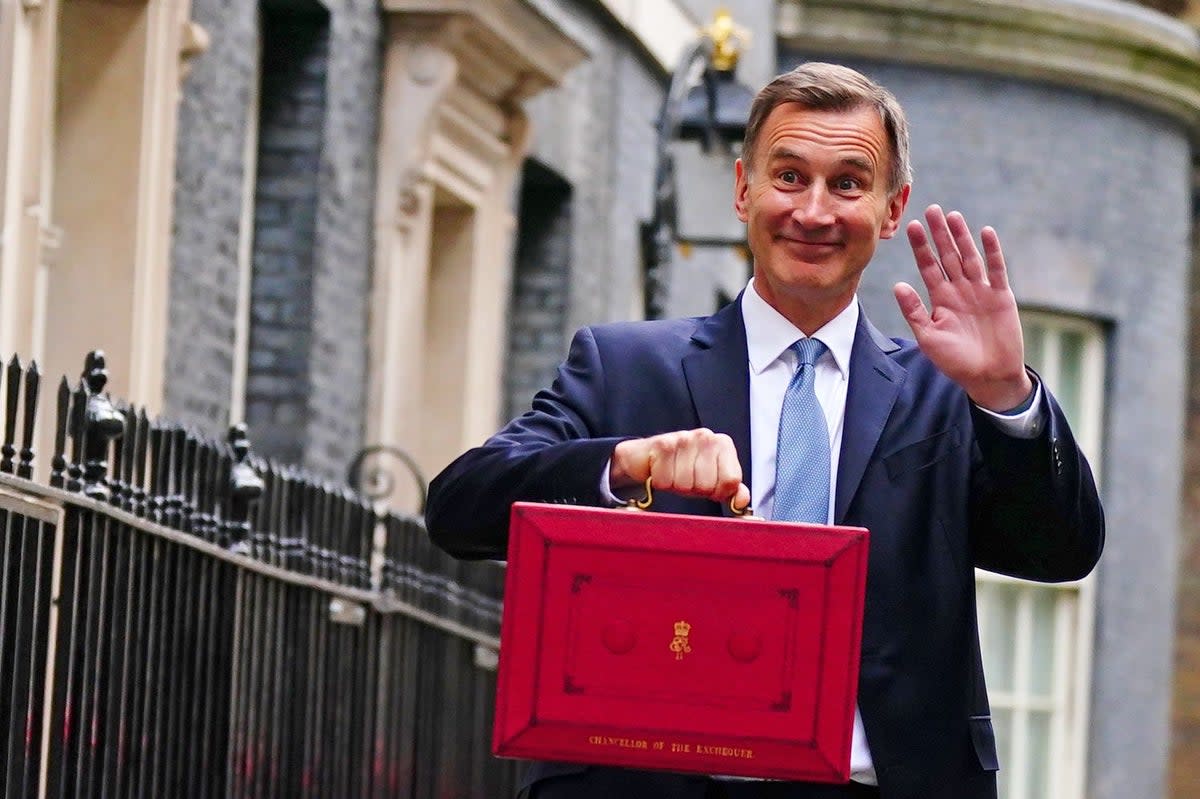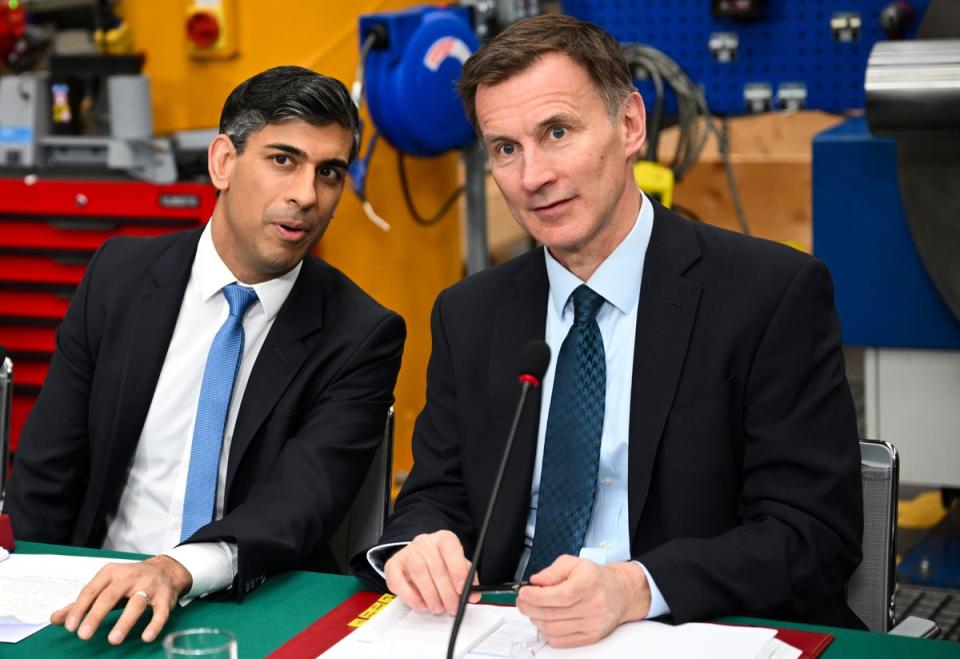Will the UK get a tax cut in Jeremy Hunt’s 2024 spring Budget?

Chancellor Jeremy Hunt is widely expected to announce further tax cuts in his spring Budget next week, following months of speculation about the government’s coming economic event.
Alongside prime minister Rishi Sunak, Mr Hunt has been building up the public’s expectation for a lightened tax burden across media appearances, with cuts mulled for income tax, national insurance – and even inheritance tax.
Analysts have put the government’s fiscal ‘headroom’ (AKA wiggle room for spending) at between £15bn to £20bn, depending on spending cuts they may also commit to. Given the popularity of tax cutting policies, and it possibly being the Conservatives’ last Budget before a general election, tax cuts seem more than likely.

Here’s everything experts have said about possible upcoming tax cuts in the spring Budget:
What taxes could be cut in the spring Budget?
Speculation has focused on personal tax cuts, according the Resolution Foundation (RF) economic think tank. Their spring Budget preview mulls a possible 1p cut to income tax (costing the government £7bn) or a 1p cut to national insurance contributions (costing the government £5bn).
Both would save £74 annually for someone who makes £20,000 a year, and £374 for someone who makes £50,000.
However, the think tank also pointed out that cancelling the income tax personal allowance freeze that has been in effect since 2021 would benefit low-earners much more. The London School of Economics has dubbed this policy a “stealth tax” which disproportionately hits low-earners.

Calculations show that bringing this allowance back in line with inflation would save £252 annually for earners on both £20,000 and £50,000.
It has also been suggested that the spring Budget will include a cut to fuel duty, in welcome news for drivers. This will come in the form of scrapping the planned 5p rise which was due to take effect from 23 March.
Will I be better off after the spring Budget?
While Mr Hunt will likely be looking to promote his low-tax policies on 6 March, they will only conceal a bigger picture according to the Institute for Fiscal Studies (IFS).
The economic research institute says that – regardless of what changes Hunt unveils next week – the UK tax burden will still hit a record high.
This is largely due to the personal allowance freeze. Even if the government commits to a £7bn giveaway in a cut to income tax, they will be pulling back £44bn a year from this “stealth” increase to income tax by 2027/28, when the freeze is due to end.
The Resolution Foundation has called this a ‘tax-raising sandwich’, with tax raises before and after next week’s budget likely to far outweigh any cuts.
This comes amid warnings that Mr Hunt could slash public spending by billions of pounds to help fund the pre-election tax cuts. The IFS notes that, while ‘protected’ departments like NHS, schools and defence have a degree of protection, other ‘unprotected’ departments could see massive cuts.
These include budgets for local government, further education, courts, prisons and police, which could see would face real-terms cuts of £18 billion in four years.
“Efficiency savings have long since been exhausted – you’re now really talking about choosing which services not to provide any more,” says Andrew Goodwin, chief UK economist at Oxford Economics.
Martin Mikloš, a research economist at IFS, warned that Mr Hunt should “resist the temptation” to cut taxes without making clear the public spending cuts he intends to make to balance the cost of them.
“Until the government is willing to provide more detail on its spending plans in a Spending Review, it should refrain from providing detail on tax cuts,” he said.
Chancellor Hunt has not yet expressly committed to tax cuts, claiming earlier this year he has less scope to do so than in his 2022 autumn statement.


